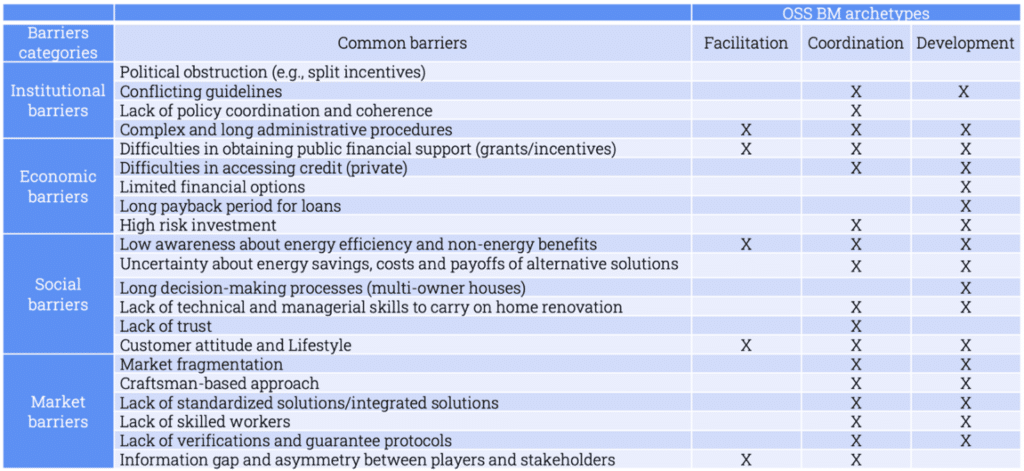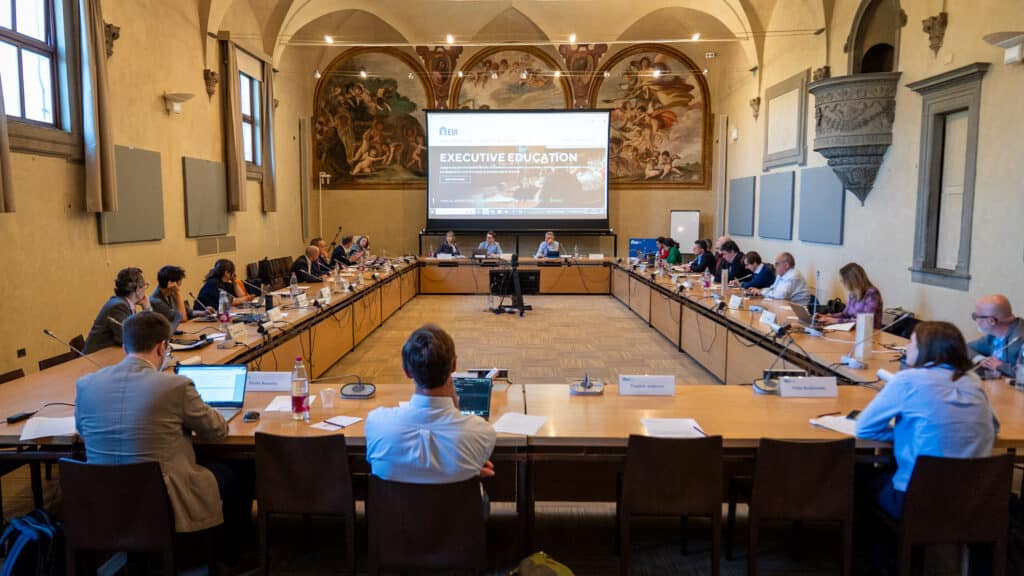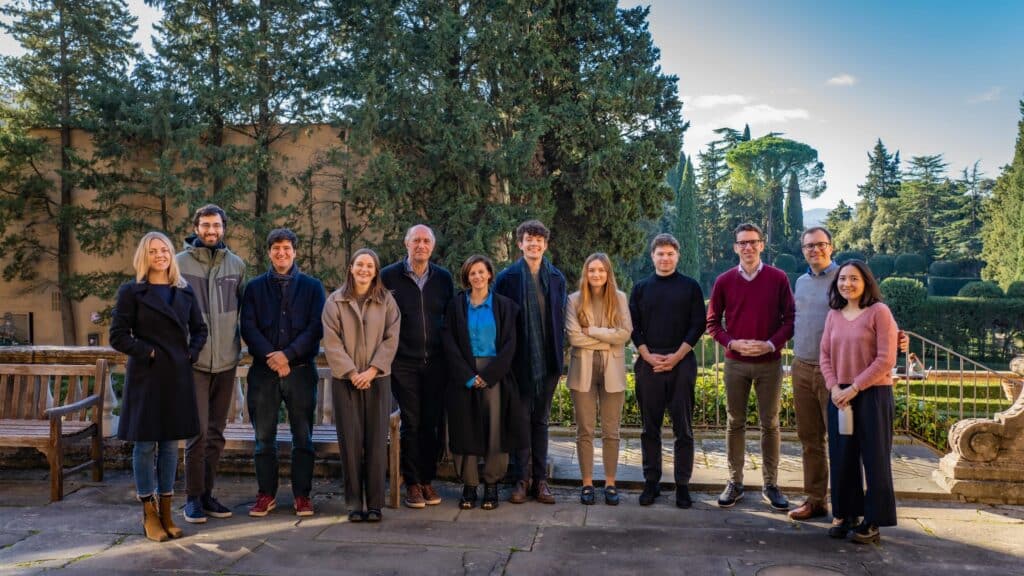Empowering Urban Renewal: The Transformative Role of One-Stop-Shops in Energy Efficiency
Highlights from the event 'Exploring Business Models for Urban Innovation'
The last episode of the #FSRInsights series hosted Annamaria Bagaini (Bocconi University), who presented her paper “Boosting energy home renovation through innovative business models: ONE-STOP-SHOP solutions assessment”. The event, moderated by Marzia Sesini (FSR) and Nicolò Rossetto (FSR), also featured contributions from Daniele Stampatori (FSR and Comillas Pontifical University) and Isabel Azevedo (INEGI) as discussants.
Dr. Bagaini ‘s research delves into urban innovation through the lens of energy-efficient home renovation, showcasing the implementation of One-Stop-Shops (OSSs) as a pivotal strategy. Originating from the H2020 project, PadovaFIT Expanded, her work targets the enhancement of private home renovations in some European cities, emphasizing a collaborative approach involving local stakeholders to co-design new business models.
During her intervention, Dr. Bagaini underlines the potential of OSSs in fostering energy-efficient renovations from a business model perspective. The research highlights that buildings significantly contribute to energy consumption and greenhouse gas emissions in the EU, with a staggering 75% of buildings exhibiting poor energy performance and about 50 million households facing energy poverty.
To address the challenges posed by building inefficiencies, the Renovation Wave Strategy and the revamped Energy Performance of Buildings Directive (EPBD) set ambitious targets for reducing energy consumption and greenhouse gas emissions by 2030 and 2050. These targets aim to enhance buildings’ energy performance and stimulate job creation in the construction sector while addressing energy poverty.
However, the path to achieving these goals is fraught with barriers ranging from institutional and behavioral to economic and technical challenges. Dr. Bagaini points out the critical role of innovative business models and initiatives in overcoming these obstacles, particularly emphasizing the utility of the OSS model.
The OSS model simplifies the renovation process for homeowners by providing a single point of access for multiple services, thereby increasing efficiency, reducing information gaps, and fostering market opportunities. The analysis of 29 OSS initiatives across the EU reveals three primary business model archetypes – Facilitation, Coordination, and Development – each characterized by unique value propositions, services, revenue streams, and approaches to partnership management.
Through a comparative assessment, the study further identifies seven sub-categories of OSSs, illustrating the diverse ways in which these models deliver value. Moreover, it explores how different OSS models address common renovation barriers, highlighting their potential to impact the building sector’s energy efficiency landscape significantly.

Commenting on the contribution by Dr. Bagaini, Dr. Azevedo raised a critical point regarding the challenge of ensuring these OSSs are visible and valuable to customers, especially those who are vulnerable. Dr. Bagaini responded, emphasizing that the effectiveness of OSSs in reaching customers heavily depends on market maturity, and highlighted the role of national policies in engaging customers through information access, particularly for low-income homeowners.
Further discussion addressed the economic viability of OSS initiatives, noting that long-term contracts, such as energy performance contracts and additional services like installing PVs or batteries, form the backbone of sustainable business models. Dr. Bagaini also pointed out that while Coordination and Development models tend to be more localized due to the need for stakeholder coordination, Facilitation models can operate at regional or national levels.
Daniele Stampatori’s query on whether OSSs offer post-renovation support to consumers underscored the importance of ongoing customer engagement. Dr. Bagaini acknowledged that while follow-up services could enhance investment performance, they introduce additional costs that must be managed. The conversation also touched on the unsustainability of public grants for long-term energy efficiency investments, positioning OSS as a market-driven solution to this challenge.
In conclusion, the discussion on empowering urban renewal through OSSs for energy-efficient home renovation underscores innovative business models’ critical role in overcoming sustainability barriers. Annamaria’s research illuminates the potential of OSSs to simplify the renovation process and stimulate market opportunities. However, ensuring the visibility and value of OSSs, especially for vulnerable customers, remains a challenge that requires strategic policy interventions and ongoing customer engagement. Overall, the transformative impact of OSSs in enhancing energy efficiency in the building sector highlights the importance of collaborative efforts among stakeholders to achieve ambitious sustainability goals.






